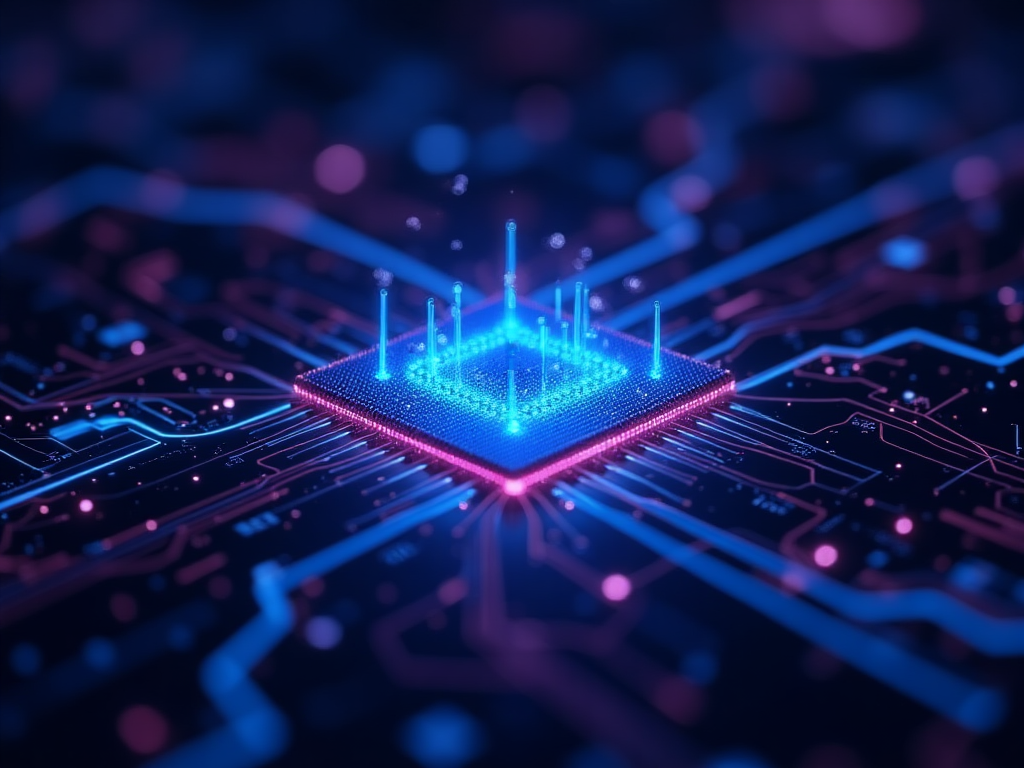Introduction: The Next Computing Revolution?
Think of neural-network learning minutes instead of months. Or so difficult an optimization problem as to make present-day supercomputers vomit. It is what has been touted as the tantalizing promise of quantum AI: a merger that has the potential to redefine machine learning, encoding and possibly even discovery itself.
However, the catch is that right now we are not there. As Google, IBM, and China invest in the field of quantum research billions of dollars, critics are preparing a “quantum winter.” In that case, is this the next great leap- or a hype cycle? Ok, so let us delve into it.
Why Are Tech Giants Betting on Quantum AI?
It is not only about being faster, quantum computing may solve problems which are in essence impossible to solve on classical computers. The greatest benefactors are machine learning, which has an unlimited appetite in terms of computational resources.
- The Quantum AI Lab of Google using its Sycamore processor is already showing supremacy at 72 qubits, saying that tasks that would take supercomputers 10,000 years can be accomplished in 200 seconds.
- IBM Condor chip (1,121 qubits) is designed to correct errors- key to stable AI well-being training.
- Photonic quantum computing is utilized by startups such as Xanadu in order to execute AI models with reduced noise.
Real life case study: In 2023, JPMorgan Chase worked with IBM to trial quantum algorithms to detect fraud. Initial findings indicated 40 percent anomaly detection speedier increase.
Here is the twist though: The quantum will not supplant old-fashioned AI any time soon. Rather, the near term play is instead hybrid systems (quantum + classical).
Where Quantum Could Supercharge AI
Faster Training, Smarter Models, Unbreakable Security
The capability of doing Parallel processing is the true advantage of Quantum. Whereas classical bits are 0 or 1, qubits are in superposition-meaning they can search out multiple solutions simultaneously.
- Drug Discovery: Biogen applied quantum-inspired algorithms in order to model the folding of a protein and reduced years of research to weeks.
- Financial Modeling: Goldman Sachs predicts by 2030, quantum AI will have the capacity to streamline the trading strategies 1,000 times quicker than current systems.
- Cybersecurity: To future-proof AI systems, uncrackable post-quantum encryption (such as the one provided by NIST, CRYSTALs-Kyber) is already under test.
However, It comes with a caveat: The current quantum computers are noisy and error-prone. Even Google innovations cannot exist without such perfect conditions (near-zero temperatures, isolated places).
The Roadblocks: Why Quantum AI Isn’t Mainstream Yet
“We’re Still in the Transistor Era of Quantum”
In words of Dr. Michio Kaku: “Quantum computing right now is the 1950s computer age; it is poised, but not yet viable.”
Key challenges:
- Decoherence: Qubits only last microseconds.
- Error rates: The physical qubits required to have one reliable one is in the millions by some quantum algorithms.
- Energy Costs: the quantum chips require humongous infrastructure to cool the chips (Google lab runs at -273 o C).
Quote: According to Google Quantum AI Dr. Hartmut Neven, “We are making all the calculations one-sided, on how much we can benefit in the short-term, but we are not thinking about what will happen in the long-term”. Speed isn?t the true innovation; it will be in finding solutions to problems we have never even realized were capable of solution.
The Future: When Will Quantum AI Deliver?
2025-2030: The Make-or-Break Decade
- Short-term (2024-2026): niche applications (materials science, logistics) will be within the hybrid systems (quantum-assisted AI).
- Very long term (2030+): Fault tolerant quantum computers with AGI-level simulating capabilities.
- Wildcard: A national quantum lab in China is worth $15B what everyone in the West is working on.
Lastly, the overriding thought or depending on the definition of faster math is that quantum AI is not merely an issue of faster math it includes recreating the possible. Will it be that Google, IBM or a dark horse will crack the code? At least one thing is assured: That the race is on.
Strong Takeaway:
Quantum AI is never going to substitute classical, machine learning; but it will automate it. It is not the question of whether but when it will. And to firms, there is no time like now- the competition is gaining early progress.”


